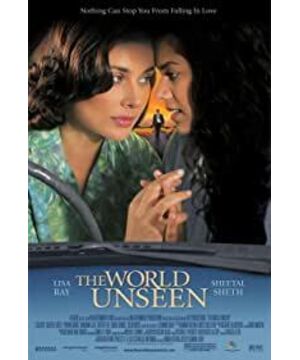It is also the cooperation between Lisa Ray and Sheetal Sheth, which is different from the easy and beautiful adult fairy tale of "I Can't Think Straight". The theme of this film is destined to be heavy.
A selfish and indifferent husband, a society under racial segregation represses perverted, completely unable to see the future of life, so Miriam will grow old and die early in her prime. She sympathized with black people but was beaten by her husband, she read poetry but was regarded as a lunatic, she wanted to go out to work, but she became an alien in the eyes of others like Amina. Apart from serving her husband and taking care of her children every day, she has no idea why she is still alive. A smile from Amina in the cafe turned out to be the only kind gesture she had received in 8 days.
If she is numb, has no knowledge, or has no pursuit, this life is not impossible. After all, in the society at that time, the vast majority of women spent their lives like this. But Miriam is unlucky because she is not numb, she is not stupid, she has her own ideas and what she wants to pursue. Although, the cruel torture of life has made her accustomed to giving up, accustomed to silence, and accustomed to enduring.
The sleeping ego in human nature is to be awakened slowly. So is love.
When the confident, independent and energetic Amina appears in Miriam's life, falling in love with her seems to have become the most natural thing.
In the sandstorm, when Amina dressed as a cowboy jumped out of the car and smiled, Miriam restrained her heartbeat and slowly passed by her. She looked at her secretly from where she lived. Both sweet and sour.
The camera moves, and Lisa Ray shows Miriam's uneasy and contradictory heart with a performance completely different from "I Can't Think Straight".
The time has changed, the background has changed, the characters have changed, she is no longer the independent woman living in the 21st century, she is a housewife living in the 1940s, she is no longer single, married as a wife, She has children, and she has no property, no freedom, or even an independent personality. She can only rely on her husband to support her, and see his face to live. In this context, when Miriam fell in love with Amina, it was not as simple as Tala just facing her parents. Not just gender, but race. Not just morality and culture, but law and punishment. She can no longer easily say, "I'm in love with a girl." Then, shaking her head, she walks away innocently. The strength of social forces cannot be resisted by individuals. Nor can we expect Miriam of Housewives to become a fighter for democracy like Martin Luther King, Jr. So the final outcome seems inevitable.
I can more forgive Miriam's helplessness than Tala's weakness. I can better understand her lonely, forbearance, despair, and strong heart.
The ending is still hopeful, not just in love, but in the fate that Miriam begins to rebel.
I like it very much.
View more about The World Unseen reviews











